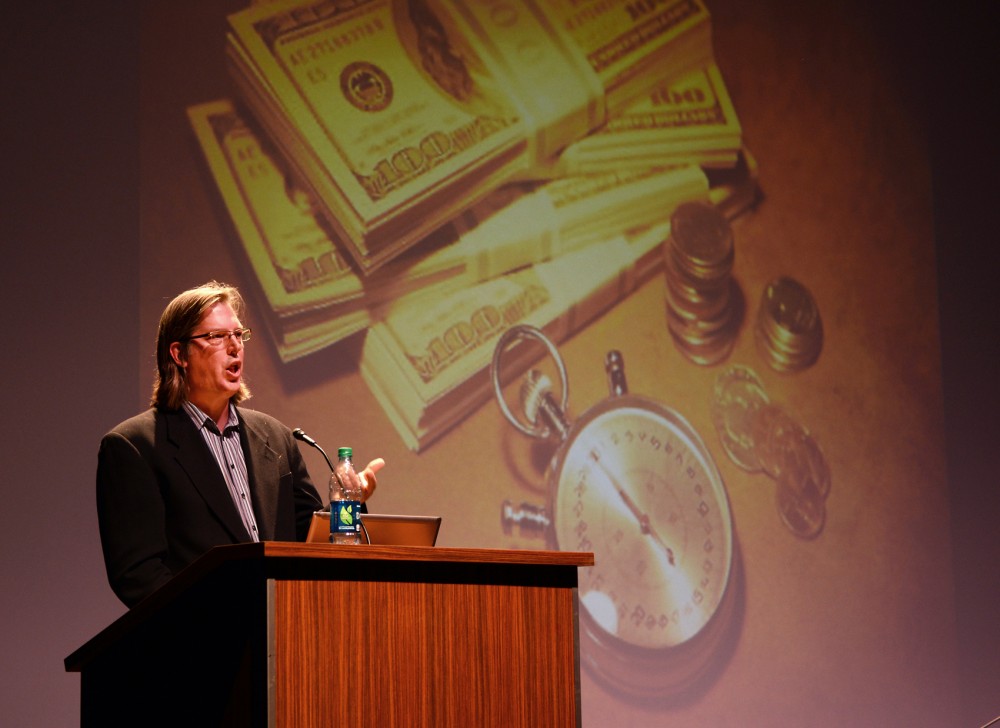Clean energy is a central part of everyday life, from the thermostats in houses to the outlets in work and school environments.
To bring awareness of efficient energy to the University of Minnesota, the Environmental Sciences, Policy and Management Student Association (ESA) invited four experts to talk about energy in Minnesota on Tuesday at a first-time event at Coffman Union called Eco-U.
Tim Schwarz, the vice president of ESA said the group wanted to choose diverse group of speakers to discuss the future of energy in Minnesota.
Nate Hagens, an adjunct professor at the University, talked about energy from an evolutionary behavior standpoint at the event.
Hagens said human history can give current historians and other scientists insight into current and future human behavior.
When humans industrialized, he said, they also globalized and learned to produce liquid fuel for little cost.
“We use about 200 times more energy, but we get to where we’re going 10 times faster,” Hagens said during his presentation.
Despite being energy inefficient, he said humans continue to use cheap but unsustainable fuel options because they’re easily accessible and can do large amounts of work.
Hagens said one barrel of oil is equivalent to 11 years of one human working.
Lester Shen, the director of innovative technologies at the Center for Energy and Environment and a speaker at the event, said the center is using design-based thinking to come up with innovative ways to save energy.
Shen said the CEE’s goal is to create a system of user-centered strategies to help people incorporate new technology into daily life.
Former Minnesota assistant Attorney General Barbara Freese said energy is one of the major factors when assessing and preventing global climate change.
Freese said despite political barriers from Congress, there’s potential to change the global warming situation.
One of the biggest problems people around the world must address, she said, is moving beyond fossil fuels.
“We probably have to move fossil fuels from the center of our economy,” she said, “and we probably have to do this in the next 35 years.”
Diana McKeown, the Metro Clean Energy Resource Team director at the Great Plains Institute, said the Institute’s clean energy teams are a collaborative partnership trying to change the way we look at energy consumption and production on a state level.
McKeown said the CERT program works with Minnesota communities to make gains on a larger scale and connect people with resources.
The CERT program works with the state to educate people and let them make informed decisions on environmental policy.


